|
Advertisement
|
????????????????! (Meishi Janken-Deai ni Kansha!)
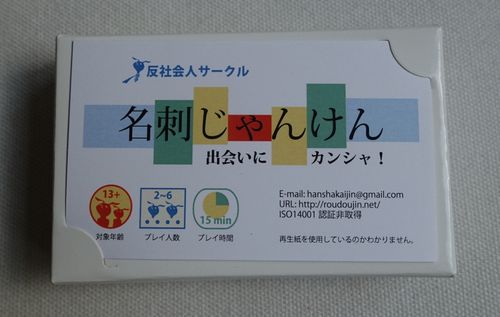
Description???????−????????! (Meishi Janken-deai ni kansha) means 'Business Card Janken - thanks for meeting!'. Deai ni kansha! is a shady phrase, which would translate to "Let's be thankful for us getting to know each other!", suggesting the satirical nature of the game. Janken is the Japanese name for Rock Scissors Paper, and is quite popular in Japan as a way of deciding things. For example, a group of several players will use it quickly to choose the start player. In this game, it means more like a way of proving your claim. In Japan, business culture is very strict, and each salaryman has their own business card. It becomes more than a contact, it becomes a symbol, the soul of the businessman. There is a polite way to give and receive a business card. It's claimed a person might get fired for bending a card they've been handed. So the designers intentionally mock the sacred nature of business cards with this frivolous game. The game is played with a deck of fake but highly realistic business cards (two are real). (So realistic, I walked off with one by mistake at the Tokyo Game Market, thinking it was the publisher's card). With company logos styled like Yapoo!, NYSO, Fugitsu, Noodle, the cards have names, addresses, QR codes, the lot. Meishi Janken - Deai ni Kansha! is a game to group together more people (by their business cards) by announcing what they have in common. The game takes place at an inter-industry exchange meeting. The players each start with a hand of 4 to 6 business cards, depending on the number of players, and try to group them with other cards as potential business partners according to what the owners of the business cards might have in common. In playing the game, cards are placed face-up, and players identify common features between cards. The colours, the logos, the names of people, the addresses, any information that matches can count. Each time you add a card to a group, state what feature the new card (that is, the person) shares with the group in addition to the features already shared among the group (so as to "deepen the ties"), and that group will belong to you. Otherwise, replace a card in your hand by discarding it in the party area and drawing a card from the deck. You can also choose to add the cards in the party area to any group. The game ends when the deck runs out and the players have used up their cards. At the end of the game, the player who has grouped the most cards wins as the "networking master". The game is intended for humour and satire, but the publishers remind you to be respectful of people's private information, since you can use real business cards too. Game DiscussionsAdd CommentYou need to be logged in to comment. Insert Bullet List Please enter at least one item. Item: Item: Item: Item: Item: Insert Numeric List Please enter at least one item. Item: Item: Item: Item: Item: Insert Link Please enter the link of the website Optionally you can add display text Insert Email Please enter the email address Optionally add any display text Insert Image Please enter the link of the image Insert YouTube Video Please enter the link of the video MarketplaceNo listings at the moment. Do you own this game? Click here to list it for sale.
|
Best Sellers
Board Games
|
||||
Latest Searches: cards against humanitu | the thing | Top rated | montana | bang samurai | vest | Aetherium | on thin ice | yolo | Lancaster County opoly game | stars right | return of the heroes | Smokers wild | Yahoo buckaroo | pathfinder wrath of the righteous | peaceable kingdom | Cop salad | south park uno | othello | hades+h3 | SOS Titanic | Timber peak | life adventures | black white mexi or jew | Connect four shots | malvern hill | Piranha | Hunted | Weed monnopoly | espn all sports trivia
All Rights Reserved


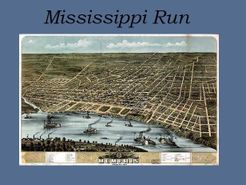
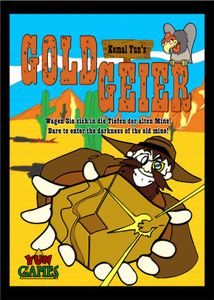
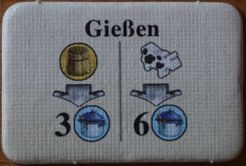
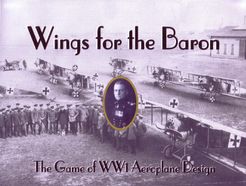
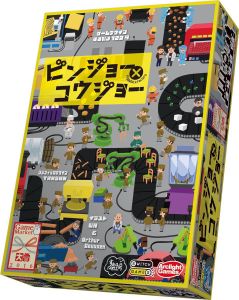


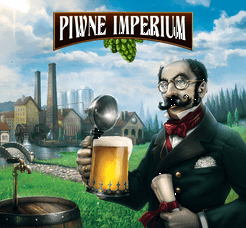
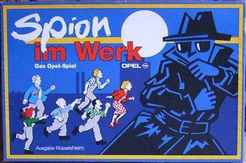
Comments (0)